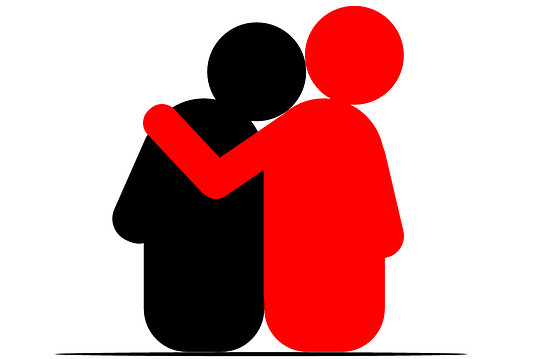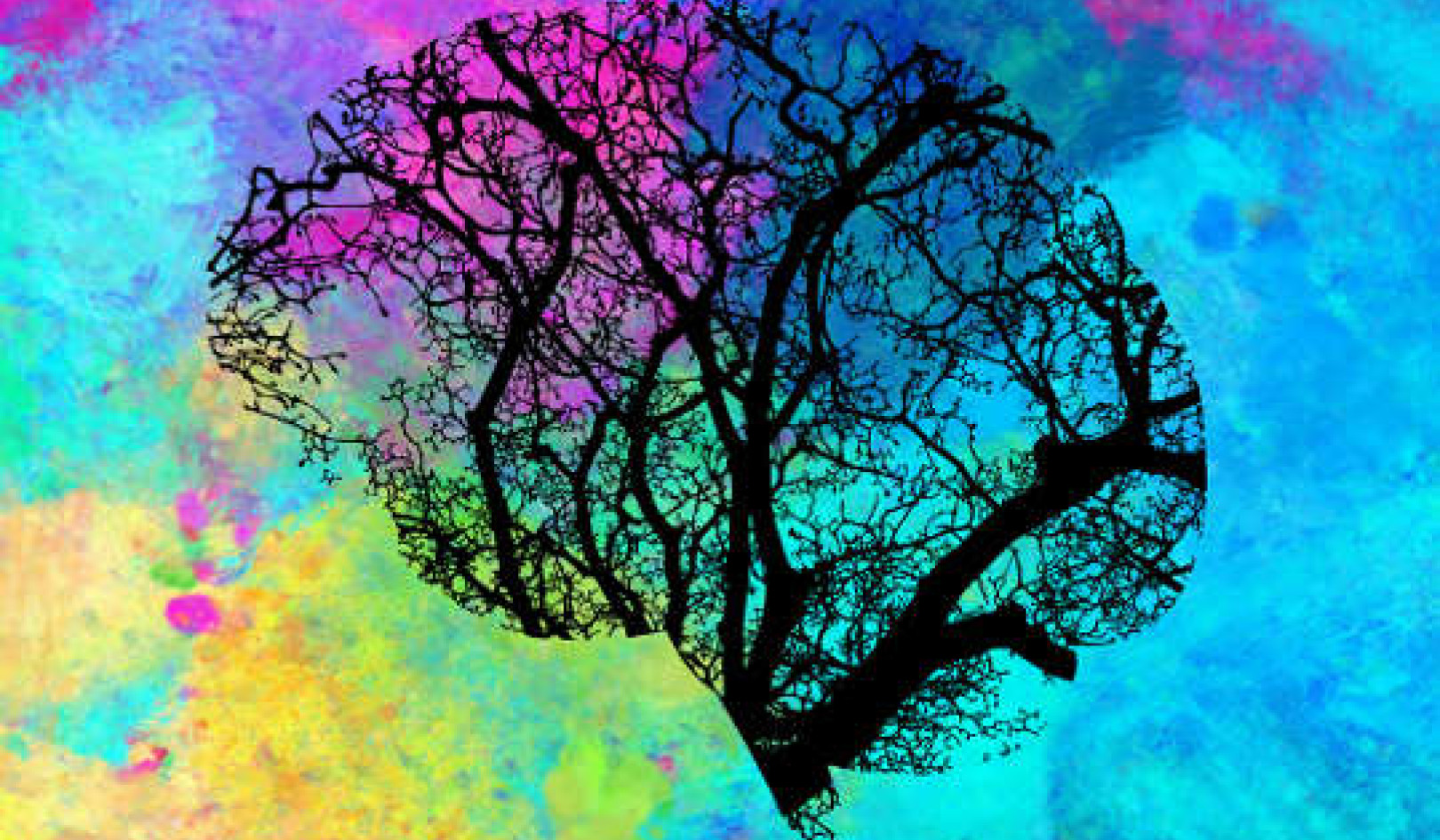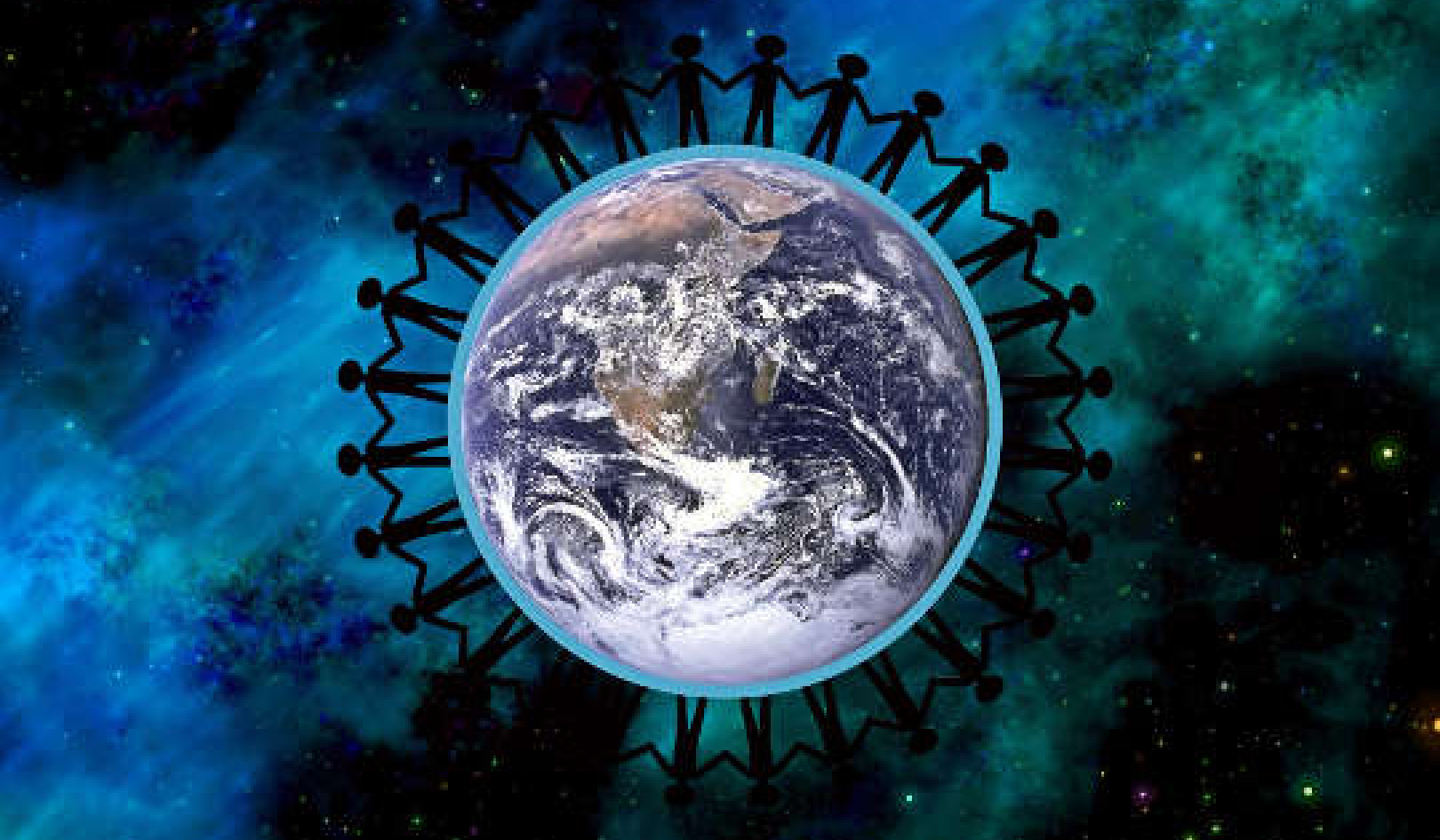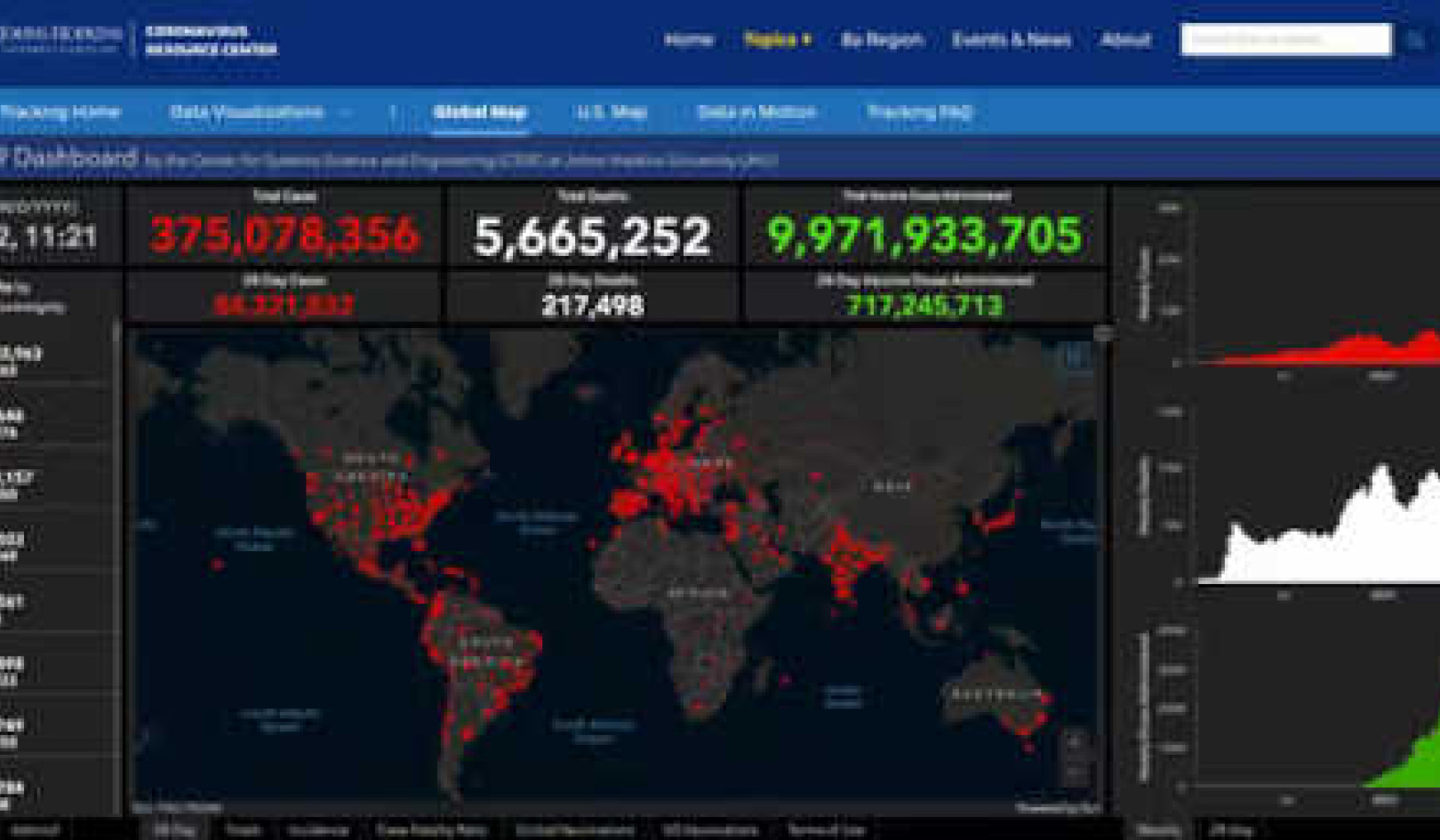 Image by Tumisu
Image by Tumisu
Modern neuroscience has now found that altruism brings us happiness in addition to being a stress reliever. This mirrors Buddhist teachings. The Prajnaparamita teaching on the innate purity of all sentient beings and of the infinite universe directly counters the Christian doctrine of original sin.
Whether we were taught about original sin or not, in Western cultures our psyche is permeated by the feeling that something is wrong with us — that there is some flaw at the core of who we are. Often, people feel a sense of shame deep inside — that we aren’t good enough, or don’t have what it takes, or are defiled.
To open to the idea that we are all inherently good is a radical shift. Through our meditations and practice of loving-kindness and compassion, we gradually come into an experiential sense of our basic goodness.
Love Enriches Our Journey Through Life
Love is the healing balm that eases and enriches our journey through life. It opens the door for us to recognize the equality and beauty of each being and ourselves. It brings joy and fulfillment into both our personal relationships and our relationship with ourselves.
The Dalai Lama and Desmond Tutu discuss this in their book The Book of Joy: Lasting Happiness in a Changing World. Desmond Tutu says, “I mean simply to say that ultimately our greatest joy is when we seek to do good for others.” Later, the Dalai Lama comments, “The best way to fulfill your wishes, to reach your goals, is to help others, to make more friends.... show your genuine sense of concern for their well-being.”
Indicative of our basic goodness is the spontaneous compassion that can arise when we witness someone in distress. Our true nature pops through in moments like this. The Buddha taught that ignorance of who we truly are, and our psychological strategies that follow, obscure our awakened nature. As we develop our altruistic aspiration and engage in Love on Every Breath, we get more in touch with our fundamental goodness, our pure being.
We are like the full moon covered by clouds. The moon is never really gone; its light is just obscured. On a cloudy night, once in a while the clouds part and the brilliance of the moon reveals itself in all its glory. Once in a while, our innate pure being, love, shines through. In a crisis, we rush to help someone we don’t know, or we are touched deeply by others’ suffering and write a check for hurricane relief.
Our Inborn Nature Is Altruistic
Recent research on infants supports the premise that our inborn nature is altruistic. One 2009 study summarized:
“Human infants as young as fourteen to eighteen months of age help others attain their goals, for example, by helping them to fetch out-of-reach objects or opening cabinets for them. They do this irrespective of any reward from adults (indeed, external rewards undermine the tendency), and very likely with no concern for such things as reciprocation and reputation.”
As we cultivate universal love that is based on the equality and worthiness of all people, it sets our intention and motivation and the trajectory for our spiritual path and actions. The bodhi-sattva intention to awaken on behalf of all sentient beings mirrors the reality that there is no separation between self and other. This elevates our meditation beyond a personal growth practice.
We can train our minds to infuse every moment of life with uncontrived, unsentimental kindness. The Dalai Lama is a great example of this. He stays grounded in himself and present with others with steadfast loving-kindness.
Be Aware of Other Motivations Besides Helping
It’s important to examine our motivation to help in order to recognize and acknowledge any other agendas. For example, helping others can sometimes be more about protecting ourselves, such as trying to assuage our guilt about our privilege. Sometimes we help because we don’t want confrontation, we don’t want to ruffle somebody’s feathers, or we want to be seen as loving and nice.
Sometimes another person’s suffering triggers our own suffering, so we try to fix their problems so that we can feel better. That’s basic codependence. If we are ruminating on how we want to respond to something, it’s helpful to try to sort through our motivations and identify what we are trying to accomplish.
Sometimes we leap to try to fix someone, or fix their life, because we are in pain. We can interfere when it is not actually our job (engaging in what Trungpa Rinpoche called “idiot compassion”). We need to give people the space to make their own assessments and decisions. That said, we don’t want to try to avoid conflict at the expense of actually working things through.
For example, when a family member is struggling with drug addiction, we might think it’s helpful or compassionate to be “nice” and pretend no problem exists, thereby avoiding painful conflicts. However, ignoring problems does not solve those problems or help the other person.
Being Ready To Forgive Is Essential For Peace of Mind
We all need to be forgiven and to forgive. Being able to forgive is essential for our peace of mind and for healing our relationships. We need to develop our capacity to forgive. However, in order to be meaningful, this needs to be authentic. We need to be ready to forgive.
We do not want to forgive before we have worked through our feelings of betrayal, anger, or hurt. This jumps to forgiveness when we are not there yet. It takes time to authentically process our feelings and come to true forgiveness in our hearts, especially if what has happened has been violent or destructive.
If we quickly forgive before processing our profound pain and grief, in actuality we are not ready yet to forgive. This “idiot forgiveness” can also happen when we have an idea that we are supposed to be “spiritual.” So we try to push our feelings under the rug in an effort to be forgiving.
Aligning Our Actions with Our Values and Integrity
It’s imperative to be clear about our motivation to benefit others, to make sure what we do aligns with our values and integrity. When we are genuinely helping another instead of saving ourselves from discomfort, then we can authentically move forward with our compassion.
When we broaden our intention to bring benefit to all others, instead of just to ourselves, our family, and our tribe, we align with our true nature — boundless love and liberating wisdom. This brings us joy. This is an important step on the spiritual path. We take a step toward nondual realization.
If we want realization, but we do not want to open our heart, or are afraid to, then realization is not going to occur. The path of awakening requires both heart and courage.
Resolving the War Within
I grew up in an upper-middle-class, well-educated family. My father was successful. Our neighborhood was full of lawyers, CEOs, and politicians. Yet at thirteen years of age, I couldn’t help noticing that my parents and my friends’ parents were miserable. They had achieved the American Dream, but they were neurotic, they were drinking too much, and their marriages were falling apart. I remember thinking, Something is wrong with this picture. These people have beautiful homes, families, jobs, money, and prestige, but they are not happy. They are miserable. There must be a different way to live my life.
This led me, at age fourteen, to study the writings of people like Mahatma Gandhi, Yogananda, and Huston Smith. I also studied some of the Western philosophers and psychologists. When I tried psychedelics, my world as I knew it showed itself to be far more transparent, workable, and responsive than I could ever have imagined. Throughout my teens, I participated in groups and learned to meditate.
As a fifteen-year-old in the late sixties, I worked as a summer volunteer on a campaign to stop the war in Vietnam. One day, after stuffing envelopes, I walked outside and thought, The war is in me, too. This anger and aggression that fuels conflicts is in me, too. I need to work on resolving the war within me. Of course, at fifteen I had no idea what a long-term project this would be.
It turns out that to truly bring myself to peace, to fulfillment, to a happiness that is not dependent on circumstances, is a major piece of work. Meditation, spiritual study, yoga, therapy, and inquiry work, along with a little help from my friends and family, have made an amazing difference in my internal landscape.
We can endlessly try to create the good circumstances in our life, but without working on ourselves, we do not usually find real happiness. As it is said, this is like rearranging the chairs on the Titanic. Even if we are able to get everything lined up how we want it, something always goes awry. All that effort to get the chairs perfect, and the ship sinks.
Issues That Can Arise in Cultivating Awakened Mind
Various kinds of resistance can arise to cultivating unbiased universal love. Once a student said to me, “I’m overwhelmed just thinking about bringing all beings to awakening. I’m going to be struggling forever, and I don’t want that. I have plenty of my own suffering. How can I consider opening to others’ sorrows? And besides, doesn’t the bodhisattva vow state that we put off our awakening until all beings are awakened? That sounds miserable.”
I told her this is the very reason we strive to awaken — to free ourselves so we are able to benefit beings in a lasting way. Some people think that the bodhisattva vow — to awaken in order to liberate all beings from suffering — means to put off awakening, but this is a misunderstanding of the teaching. Yes, it is sometimes written that bodhisattvas put off enlightenment until all beings are liberated. But it is not meant to be taken literally.
It means that after awakening, a bodhisattva continues to manifest in the world in order to be of benefit. The bodhisattva vow is to awaken in order to be able to liberate all beings. Once you are fully awakened, not only are you free, but you have limitless skillful means with which to be of help.
Here is an inspiring quote by Shantideva from his renowned text The Way of the Bodhisattva:
May I be a guard for those who are protectorless,
A guide for those who journey on the road.
For those who wish to go across the water,
May I be a boat, a raft, a bridge.
May I be an isle for those who yearn for landfall,
A lamp for those who long for light;
For all who need a resting place, a bed;
For those who need a servant, may I be their slave.
May I be a wishing jewel, the vase of plenty,
A word of power and the supreme healing,
May I be the tree of miracles,
For every being the abundant cow.
Just like the earth and the pervading elements,
Enduring as the sky itself endures,
For boundless multitudes of living beings
May I be their ground and sustenance.
Thus for every thing that lives,
As far as the limits of the sky,
May I provide their livelihood and nourishment
Until they pass beyond the bonds of suffering.
Cultivating Compassion and Love Updates and Upgrades Our Wiring
In awakening, we realize that essential nature is nondual — that our vivid awareness, appearance, and shunyata (or the reality that things do not truly exist in the way we think they do) are not separate. Myself and others are not separate, heaven and earth are not separate, samsara and nirvana are of one taste.* Phenomena may be unique and impermanent, but true nature is seamless and changeless.
The bodhisattva path is workable because it is not our limited self, ego, or personal sense of self and its accompanying psychological structure that is going to accomplish liberating ourselves and all beings. The meditations in which we cultivate compassion and love — in which we open into taking others’ needs to be as important as our own — open us to experiencing who we are beyond our ego identity, beyond our ego operating system. These meditations update and upgrade our wiring, aligning us with our true nature.
On my spiritual journey, there have been periods of time when I felt like I was being rewired. This is not always an easy process, but it has left me with an ego more transparent to pure being. Some of my walls have been taken down. This has led to deeper realization.
Loving-kindness Is In Alignment With Who We Truly Are
Beyond self-interest, and the fact that being kind to others brings us happiness, loving-kindness is in alignment with who we truly are. Realization does not happen without it.
Liberation cannot occur with a closed heart. Usually our hearts close, to varying degrees, because at some point we were so hurt that it was easier to shut down. These layers of defense against our pain may seem to work for a while, but it’s an illusion.
Cultivate the wish to fully awaken in order to completely free others and yourself from suffering and to establish everyone in complete freedom, joy, and peace.
©2019 by Lama Palden Drolma. All rights reserved.
Reprinted with permission of the publisher,
New World Library -- www.newworldlibrary.com
Article Source
Love on Every Breath: Tonglen Meditation for Transforming Pain into Joy
by Lama Palden Drolma Today, when our human family is facing so many challenges, it is more important than ever that we find peace and sustenance in our hearts. Love on Every Breath, or Tonglen, is a seven-step meditation for anyone who wants to nourish and open their heart. An ancient and profound meditation that has been practiced in isolated mountain retreats in the Himalayas for centuries, it is now available to us in the modern world. Lama Palden Drolma, a Western teacher trained by Tibetan Buddhist masters and also schooled in contemporary psychotherapy, introduces readers to the meditation in this powerful, user-friendly book. (Also available as a Kindle edition.)
Today, when our human family is facing so many challenges, it is more important than ever that we find peace and sustenance in our hearts. Love on Every Breath, or Tonglen, is a seven-step meditation for anyone who wants to nourish and open their heart. An ancient and profound meditation that has been practiced in isolated mountain retreats in the Himalayas for centuries, it is now available to us in the modern world. Lama Palden Drolma, a Western teacher trained by Tibetan Buddhist masters and also schooled in contemporary psychotherapy, introduces readers to the meditation in this powerful, user-friendly book. (Also available as a Kindle edition.)
About the Author
 Lama Palden Drolma is the author of Love on Every Breath. A licensed psychotherapist, spiritual teacher, and coach, she has studied Buddhism in the Himalayas with some of the most preeminent Tibetan masters of the twentieth century. Following a traditional three-year retreat under his guidance, Kalu Rinpoche authorized her to become one of the first Western lamas. She subsequently founded the Sukhasiddhi Foundation, a Tibetan Buddhist teaching center in Fairfax, California. Visit her online at http://www.lamapalden.org.
Lama Palden Drolma is the author of Love on Every Breath. A licensed psychotherapist, spiritual teacher, and coach, she has studied Buddhism in the Himalayas with some of the most preeminent Tibetan masters of the twentieth century. Following a traditional three-year retreat under his guidance, Kalu Rinpoche authorized her to become one of the first Western lamas. She subsequently founded the Sukhasiddhi Foundation, a Tibetan Buddhist teaching center in Fairfax, California. Visit her online at http://www.lamapalden.org.
Video with Lama Palden Drolma
{vembed Y=00S1F_z5xxc}
Related Books
More books on this topic
at InnerSelf Market and Amazon
























